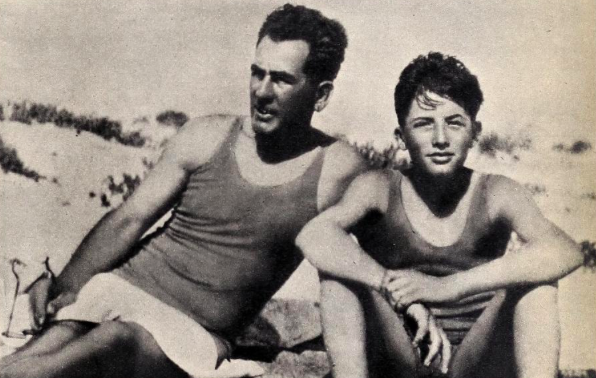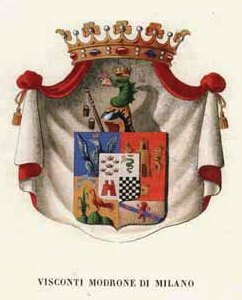|
Days Of Glory (Indigènes)
Days of Glory may refer to: * ''Days of Glory'' (1944 film), a World War II film starring Tamara Toumanova and Gregory Peck *''Giorni di gloria'' (''Days of Glory''), a 1945 Italian documentary about the World War II Ardeatine massacre, directed by Giuseppe De Santis, Mario Serandrei, Marcello Pagliero and Luchino Visconti * ''Days of Glory'' (2006 film) (''Indigènes''), directed by Rachid Bouchareb Rachid Bouchareb (born 1 September 1953) is a French film director and producer. His films are based on the complex history of France and its relationship with its former colony, Algeria. His films also examine racial discrimination and conflict ... See also * Glory Days (other) {{SIA, films ... [...More Info...] [...Related Items...] OR: [Wikipedia] [Google] [Baidu] |
Days Of Glory (1944 Film)
''Days of Glory'' is a 1944 American film, directed by Jacques Tourneur, which tells the story of a group of Soviet guerrillas fighting back during the 1941 Nazi invasion of Russia. It marked the film debut of Tamara Toumanova and Gregory Peck, as well as most of the other principal actors. It was also the first film produced by screen writer Casey Robinson, who in early January 1943 had been contracted by RKO Radio Pictures to write and produce the film under the working title ''This Is Russia''. Robinson and Toumanova married in 1944 and divorced in 1955. The film included the last screen appearance of actor Erford Gage, who subsequently entered the U.S. Army and was killed in action in 1945. Plot In the snowy Russian countryside of the early 1940s, Vladimir (Gregory Peck) leads a squad of partisan fighters operating behind German lines. The group's routines are disrupted when Nina (Tamara Toumanova), a ballerina, is brought to their hideout after becoming separated from her ... [...More Info...] [...Related Items...] OR: [Wikipedia] [Google] [Baidu] |
Tamara Toumanova
Tamara Toumanova ( ka, თამარა თუმანოვა; 2 March 1919 – 29 May 1996) was a Russian-born Georgian-American prima ballerina and actress. A child of exiles in Paris after the Russian Revolution of 1917, she made her debut at the age of 10 at the children's ballet of the Paris Opera. She became known internationally as one of the Baby Ballerinas of the Ballet Russe de Monte Carlo after being discovered by her fellow émigré, balletmaster and choreographer George Balanchine. She was featured in numerous ballets in Europe. Balanchine featured her in his productions at Ballet Theatre, New York, making her the star of his performances in the United States. While most of Toumanova's career was dedicated to ballet, she appeared as a ballet dancer in several films, beginning in 1944. She became a naturalized United States citizen in 1943 in Los Angeles, California. Career Toumanova was the daughter of Yevgenia [...More Info...] [...Related Items...] OR: [Wikipedia] [Google] [Baidu] |
Gregory Peck
Eldred Gregory Peck (April 5, 1916 – June 12, 2003) was an American actor and one of the most popular film stars from the 1940s to the 1970s. In 1999, the American Film Institute named Peck the AFI's 100 Years...100 Stars, 12th-greatest male star of Classic Hollywood Cinema. After studying at the Neighborhood Playhouse with Sanford Meisner, Peck began appearing in stage productions, acting in over 50 plays and three Broadway theatre, Broadway productions. He first gained critical success in ''The Keys of the Kingdom (film), The Keys of the Kingdom'' (1944), a John M. Stahl–directed drama that earned him his first Academy Award nomination. He starred in a series of successful films, including romantic-drama ''The Valley of Decision'' (1944), Alfred Hitchcock's ''Spellbound (1945 film), Spellbound'' (1945), and family film ''The Yearling (1946 film), The Yearling'' (1946). He encountered lukewarm commercial reviews at the end of the 1940s, his performances including ''The Para ... [...More Info...] [...Related Items...] OR: [Wikipedia] [Google] [Baidu] |
Ardeatine Massacre
The Ardeatine massacre, or Fosse Ardeatine massacre (), was a mass killing of 335 civilians and political prisoners carried out in Rome on 24 March 1944 by German occupation troops during the Second World War as a reprisal for the Via Rasella attack in central Rome against the SS Police Regiment Bozen the previous day. Subsequently, the Ardeatine Caves site (''Fosse Ardeatine'') was declared a Memorial Cemetery and National Monument open daily to visitors. Every year, on the anniversary of the slaughter and in the presence of the senior officials of the Italian Republic, a solemn state commemoration is held at the monument in honour of the fallen. Each year, 335 names are called out, a simple roll call of the dead, to reinforce that 335 discrete individuals symbolise a collective entity. Historical background In July 1943, the Allies landed on the island of Sicily, preparing to invade the mainland, and Rome was bombed for the first time. On 24 July 1943, the Fascist Gr ... [...More Info...] [...Related Items...] OR: [Wikipedia] [Google] [Baidu] |
Giuseppe De Santis
Giuseppe De Santis (11 February 1917 – 16 May 1997) was an Italian film director. One of the most idealistic neorealist filmmakers of the 1940s and 1950s, he wrote and directed films punctuated by ardent cries for social reform. He was the brother of Italian cinematographer Pasqualino De Santis. His wife was Gordana Miletic (native spelling: Miletić), a Yugoslav actress and former ballet dancer. Biography De Santis was born in Fondi, Lazio. He was a member of the Italian Communist Party (PCI) and fought with the anti-German Resistance in Rome during World War II. He was first a student of philosophy and literature before entering Rome's Centro Sperimentale di Cinematografia. While working as a journalist for ''Cinema'' magazine, De Santis became, under the influence of Cesare Zavattini, a major proponent of the early neorealist filmmakers who were trying to make films that mirrored the simple and tragic realities of proletarian life using location shooting and n ... [...More Info...] [...Related Items...] OR: [Wikipedia] [Google] [Baidu] |
Mario Serandrei
Mario Serandrei (23 May 1907 – 17 April 1966) was an Italian film editor and screenwriter. Born in Naples, he started in the film industry in 1931 as an assistant director. He edited over two hundred films during his career, and worked steadily until his death in 1966. As an editor, Serandrei's credits included Federico Fellini's '' Il bidone'' (1955), Pietro Francisci's ''Hercules'' (1958) and '' Hercules Unchained'' (1959), Valerio Zurlini's '' Violent Summer'' (1959), '' La ragazza con la valigia'' (1961) and '' Cronaca familiare'' (1962), and the Robert Aldrich/Sergio Leone film of ''Sodom and Gomorrah'' (1963). He enjoyed a long working relationship with director Luchino Visconti, editing '' Ossessione'' (1943), '' Bellissima'' (1951), '' Senso'' (1954), ''Rocco and His Brothers'' (1960) and '' The Leopard'' (1963). At the end of his career, he edited many films directed by Mario Bava, including '' Black Sunday'' (1960) (which he also co-wrote), ''Black Sabbath'' (1963 ... [...More Info...] [...Related Items...] OR: [Wikipedia] [Google] [Baidu] |
Marcello Pagliero
Marcello Pagliero (15 January 1907 – 18 October 1980) was an Italian film director, actor, and screenwriter. Pagliero was born in London and died in Paris. He is perhaps best known for his performance in the Roberto Rossellini film ''Rome, Open City'' (1945). He moved to France in 1947, and continued to work in film until 1960 and in French television after that. In 1949, he was nominated with six other co-writers for an Academy Award for Best Original Screenplay for the Rossellini film '' Paisan''. Selected filmography Director * '' Mist on the Sea'' (1944) * ''Desire'' (1946) * '' Rome, Free City'' (1946) * '' A Man Walks in the City'' (1950) * '' The Red Rose'' (1951) * '' The Lovers of Bras-Mort'' (1951) *'' The Respectful Prostitute'' (1952) * '' Vestire gli ignudi'' (1953) * '' Daughters of Destiny'' (1954) * '' Modern Virgin'' (1954) * '' Chéri-Bibi'' (1955) * '' Walk Into Paradise'' (1956) - French version * '' 20,000 Leagues Across the Land'' (1961) Screenwrit ... [...More Info...] [...Related Items...] OR: [Wikipedia] [Google] [Baidu] |
Luchino Visconti
Luchino Visconti di Modrone, Count of Lonate Pozzolo (; 2 November 1906 – 17 March 1976) was an Italian filmmaker, theatre and opera director, and screenwriter. He was one of the fathers of Italian neorealism, cinematic neorealism, but later moved towards luxurious, sweeping epics dealing with themes of beauty, decadence, death, and European history, especially the decay of the nobility and the bourgeoisie. Critic Jonathan Jones (journalist), Jonathan Jones wrote that “no one did as much to shape Italian cinema as Luchino Visconti.” Born into a Milanese Visconti di Modrone, noble family with close ties to the artistic world, Visconti began his career in France as an assistant director to Jean Renoir. His 1943 directorial debut, , was condemned by the Fascist Italy (1922–1943), Fascist regime for its unvarnished depictions of working-class characters, but is today renowned as a pioneering work of Italian cinema, generally regarded as the first neorealist film. During Wor ... [...More Info...] [...Related Items...] OR: [Wikipedia] [Google] [Baidu] |


